Through Fanon, Jean-Claude Barny delivers a masterful and committed biopic on Frantz Fanon, a key figure of anticolonialism. This intense film blends historical epic, political revolt, and poignant humanity, shedding light on the fate of a man whose ideas still resonate today. A must-see in 2025, to understand history and reflect on our present.
Fanon, the new biographical film directed by Jean-Claude Barny, is set to immerse audiences in the tumultuous life of Frantz Fanon, anticolonial thinker and revolutionary psychiatrist. Premiered at the 2024 Marrakech International Film Festival, this committed biopic fuses historical narrative and human drama. Balancing intimate portrait and political epic, Fanon promises to be one of the standout political cinema events of the year, offering a powerful reflection on colonialism while remaining accessible and captivating to a wide audience.
Historical context and cultural importance
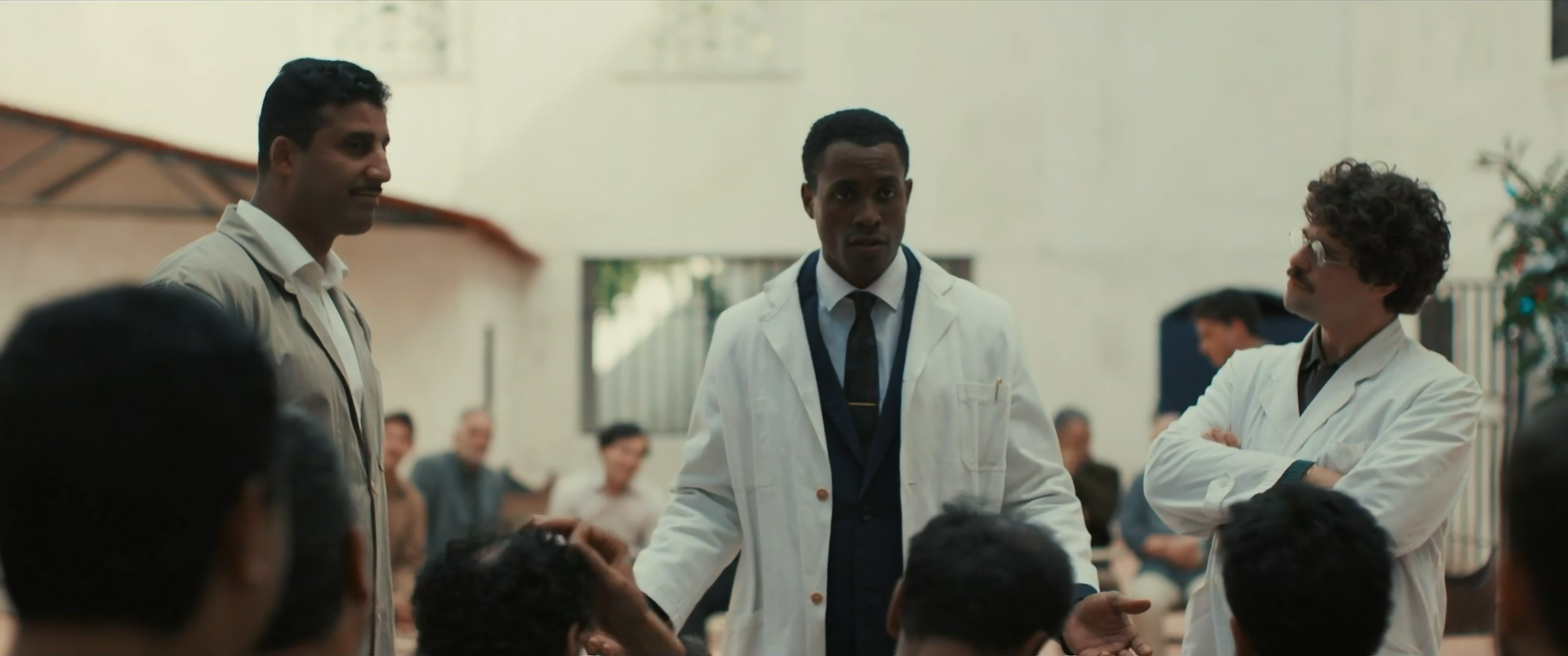
Set in colonial Algeria during the 1950s, Fanon places the personal story of Frantz Fanon within the broader context of the Algerian War of Independence and the fight against French colonialism. Born in 1925 in Martinique (then a French colony), Frantz Fanon experienced the workings of the colonial empire from within before becoming one of the most influential voices of decolonization. The film focuses on his arrival in Algeria in 1953 as head of department at the psychiatric hospital of Blida-Joinville, a prestigious position where he quickly clashes with the injustices of the colonial system.
Through this pivotal period, Fanon highlights how the young psychiatrist’s experiences shaped his political consciousness and fueled his revolutionary writings.
Culturally, Fanon’s importance goes far beyond academia – his works Black Skin, White Masks (1952) and The Wretched of the Earth (1961) have inspired generations of thinkers, artists, and activists around the world. Bringing his life to the screen today holds particular significance: not only does 2025 mark the centenary of Fanon’s birth, but the film also arrives at a time when questions of colonialism and decolonization are once again front and center. In the tradition of political cinema classics like The Battle of Algiers by Gillo Pontecorvo or Outside the Law by Rachid Bouchareb, Barny’s film takes a historical and political approach, inviting the audience to reflect on mechanisms of colonial oppression and their echoes in contemporary society. This strong historical foundation gives Fanon a cultural significance that goes beyond a simple biopic: it is a dialogue between past and present, a work that questions our collective memory and the very notion of humanity in the face of injustice.
Jean-Claude Barny behind the camera: a vision between realism and poetry

At the helm of Fanon, director Jean-Claude Barny brings a passionate and nuanced vision. A French filmmaker of Guadeloupean and Trinidadian descent, Barny rose to prominence with The Gang of the Antilles (2016) and is known for his ability to combine social realism with poetic flair. With Fanon, he takes on the ambitious challenge of transcending the standard biographical narrative to offer an immersive cinematic experience. His evocative direction plunges viewers into the simmering atmosphere of 1950s Algeria: from the sun-drenched, tension-filled hallways of the Blida asylum to the restless alleyways stirred by early uprisings.
Barny chooses to portray the moral and political tensions that shaped Fanon rather than sticking to a linear chronology. This creative choice results in intense scenes where the protagonist faces ethical dilemmas and the violence of the colonial regime.
Visually, Barny relies on careful cinematography – by Ariel Méthot – with bright hues that contrast with the harshness of the subject matter.
His style, blending raw realism (to expose the brutality of oppression) and visual poetry (to convey the hope and humanity that persist), gives the film a distinct identity. The result is a balance between European auteur cinema and mainstream historical drama, making Fanon both enlightening and thrilling. At its screening in Marrakech, the film stood out for its committed approach and accessibility, resonating with both seasoned cinephiles and general audiences seeking history and powerful emotions.
A cast in service of History
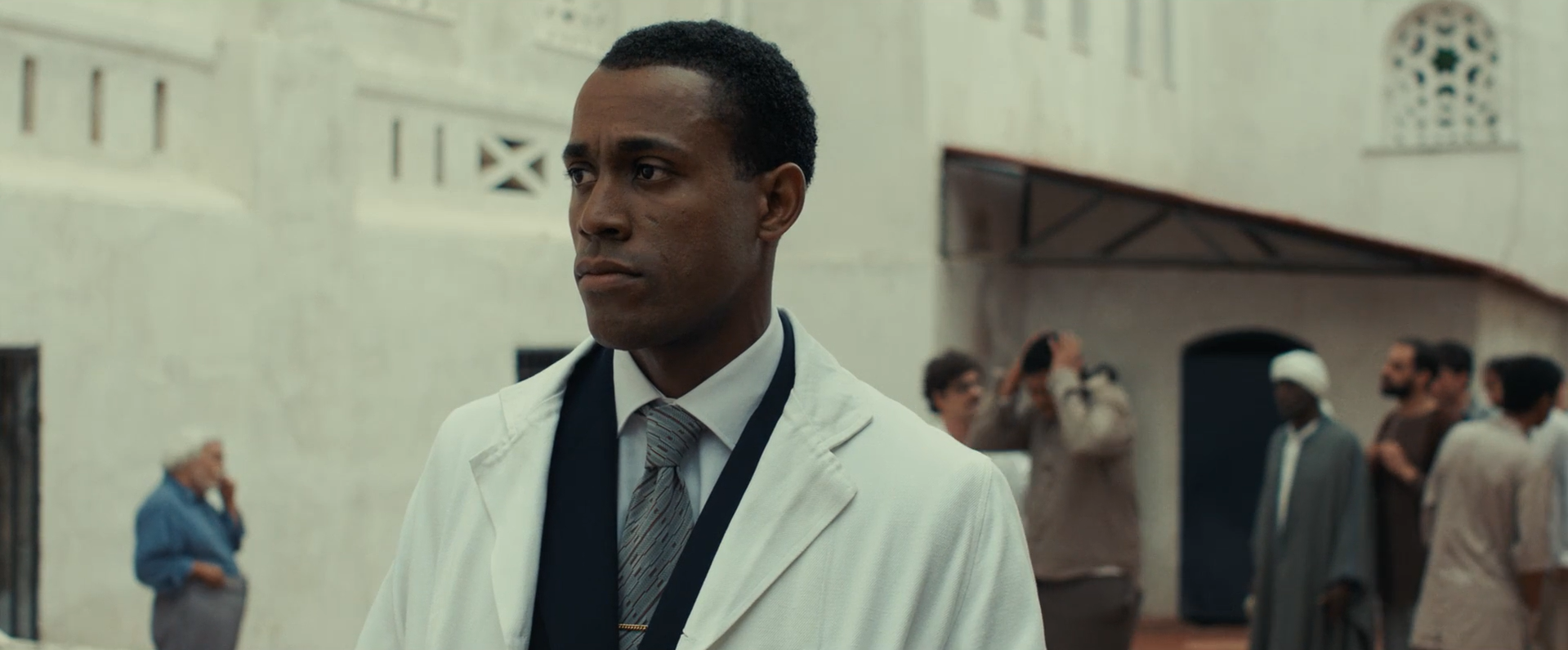
To bring this story to life, Fanon relies on a strong cast blending fresh faces and seasoned actors. In the title role, young actor Alexandre Bouyer delivers a breakout performance. Still relatively unknown to the public, Bouyer captures the charisma, determination, and sensitivity of the anticolonial hero. His Fanon first appears as a polite, confident man – arriving in a sharp suit with his psychiatry degree – who gradually reveals the passionate militant within as he confronts injustice.
Opposite him is Belgian actress Déborah François as Josie, Fanon’s wife. She portrays a strong, compassionate woman, unwavering in her support of her husband’s struggle. While Josie Fanon often remains in the background, her significance is felt in every scene, with François imbuing the role with grace and determination – reminding us that Josie was herself a committed activist.
The rest of the cast adds historical credibility to the film. Veteran actor Olivier Gourmet plays Professor Darmain, the director of the Blida hospital, representing a paternalistic and cynical colonial authority in contrast to Fanon’s progressive methods. Stanislas Merhar plays Sergeant Rolland, a zealous French officer whose fierce brutality toward Algerian detainees and insurgents epitomizes state violence – a tough, nuanced role in which Merhar shows how oppression dehumanizes even the oppressor. Notable supporting performances include Mehdi Senoussi as Hocine, an Algerian nurse who introduces Fanon to local resistance, and Salomé Partouche and Arthur Dupont as young Jewish-Algerian colleagues caught between two worlds.
Each actor, from leads to supporting roles, brings authenticity and depth that reinforce the film’s message. This committed casting brings to life a gallery of characters emblematic of an era, making Fanon both a human saga and a historical narrative.
Committed themes: colonialism, psychiatry, and the quest for justice
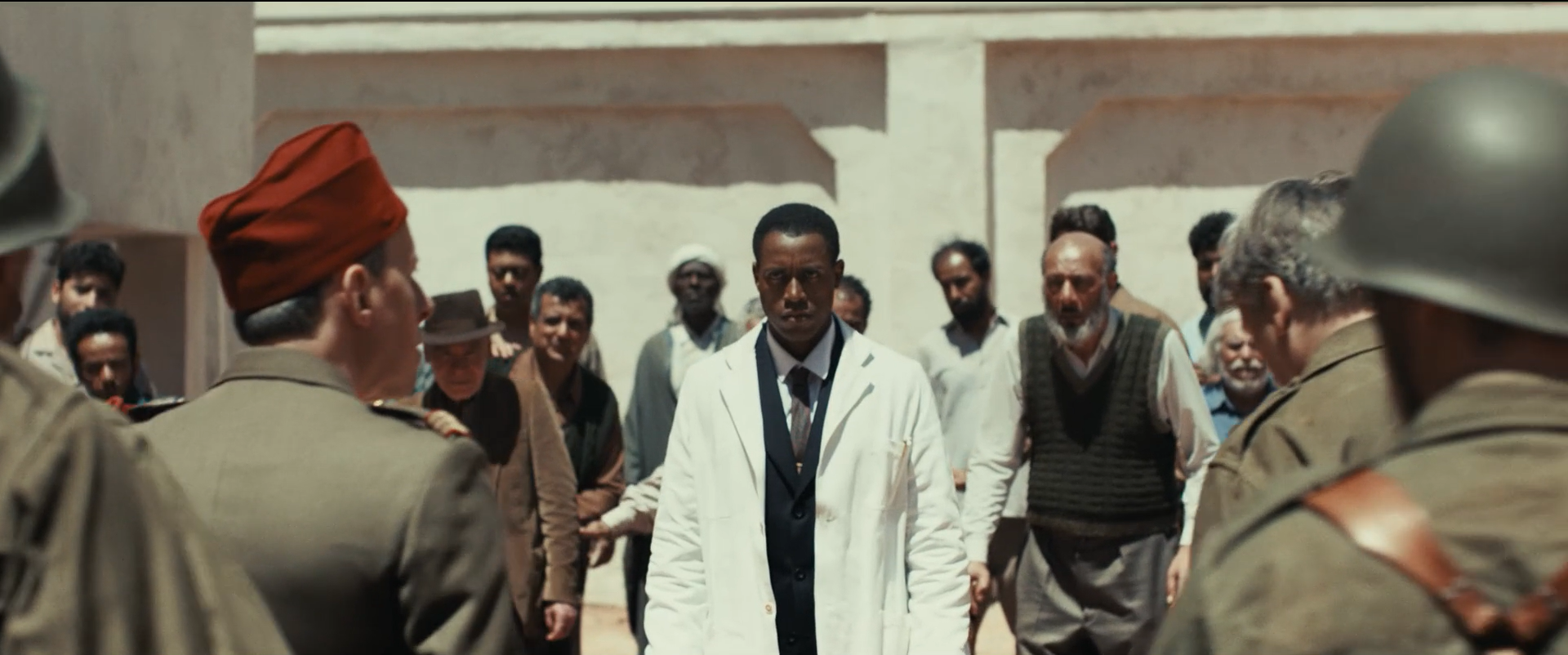
Beyond Frantz Fanon’s individual fate, the film tackles universal themes that still resonate today. Fanon sheds an unflinching light on the ravages of colonialism and the systemic dehumanization it entails. Inside the Blida psychiatric hospital, the young doctor discovers Algerian patients subjected to institutionalized violence – straitjackets, deprivation, daily humiliations – revealing a chilling continuity between colonial oppression outside and asylum methods within.
As a humanist, Fanon seeks to restore dignity to these forgotten patients, opening the windows of darkened wards, abolishing arbitrary punishments, and establishing equal treatment for all. These symbolically powerful scenes echo the country’s political situation: they mirror the condition of the Algerian people under colonial rule, treated as strangers on their own land.
The film also explores Fanon’s growing awareness and radicalization. Witnessing the suffering inflicted by the colonial regime, the psychiatrist concludes that when human beings are “treated like animals, they have every reason to take up arms against their oppressors.” Fanon shows how the doctor’s compassion evolves into political commitment as the Algerian War intensifies. From secret FLN (National Liberation Front) meetings to moral dilemmas regarding his oath as a healer, Fanon increasingly engages in the fight for freedom, even at the risk of his career and life.
Underlying it all, the film emphasizes the power of thought and writing as weapons of resistance. We see the protagonist dictating his reflections to his wife, which will later become crucial pages of The Wretched of the Earth.
The screenplay, co-written by Jean-Claude Barny and Philippe Bernard, succeeds in weaving excerpts from Fanon’s vibrant prose into the narrative in an accessible way, never descending into didacticism. As such, the audience hears Fanon’s voice – through some of his most striking phrases – while witnessing the injustices that inspired those words. Themes of alienation, institutionalized racism, legitimate revolt, and the quest for dignity permeate the film, giving it powerful contemporary relevance. At a time when discussions of colonial legacies and systemic racism are resurfacing worldwide, Fanon provides illuminating historical perspective. It strongly reminds us that the struggles of the past for equality and justice continue to inspire those of today.
A must-see film: history lesson meets emotional impact
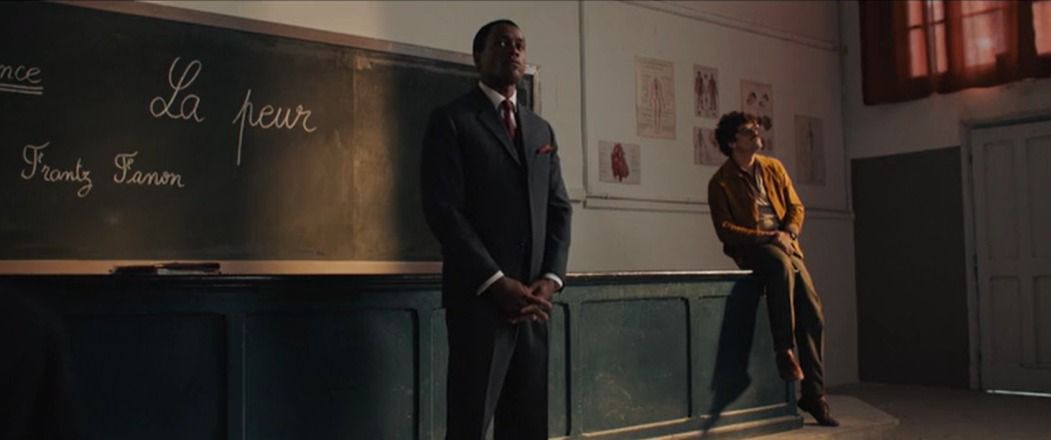
“Fanon”: Jean-Claude Barny brings Frantz Fanon’s anticolonial struggle to the screen
Why should audiences go see Fanon? First, to discover a major historical figure rarely portrayed on screen. Frantz Fanon is a largely unknown hero whose remarkable life and visionary ideas deserve widespread recognition. The film delivers a vivid history lesson, embodied by relatable characters swept up in the whirlwind of events. It offers a firsthand understanding of the stakes of the Algerian War and the roots of anticolonial thought, through the lens of a man who lived those struggles in the flesh.
Second, Fanon is not just an informative film – it is a gripping drama structured like a political thriller. Barny’s direction maintains steady dramatic tension, especially in the final part where the plot takes on clandestine suspense as Fanon becomes involved with the independence movement. The audience is kept on edge, even if they know the historical outcome, thanks to tight direction and a stirring soundtrack that underscores both urgency and emotion (the original score by Thibault Kientz-Agyeman and Ludovic Louis perfectly complements key moments). Viewers leave the screening moved by Fanon’s personal journey and stirred by the film’s universal message.
Finally, Fanon is a film of hope and humanity. Despite the darkness of the events depicted, the film is driven by the belief that courageous individuals can make a difference. Fanon is portrayed not as a frozen icon of the past, but as a man in struggle, with ideals and contradictions – a man who, when faced with the unacceptable, chooses action and solidarity. This approach makes the character deeply human and relatable. Today’s audiences will see themselves in this fight for dignity and justice, still so relevant. Accessible without sacrificing depth, Fanon successfully blends entertainment with historical consciousness.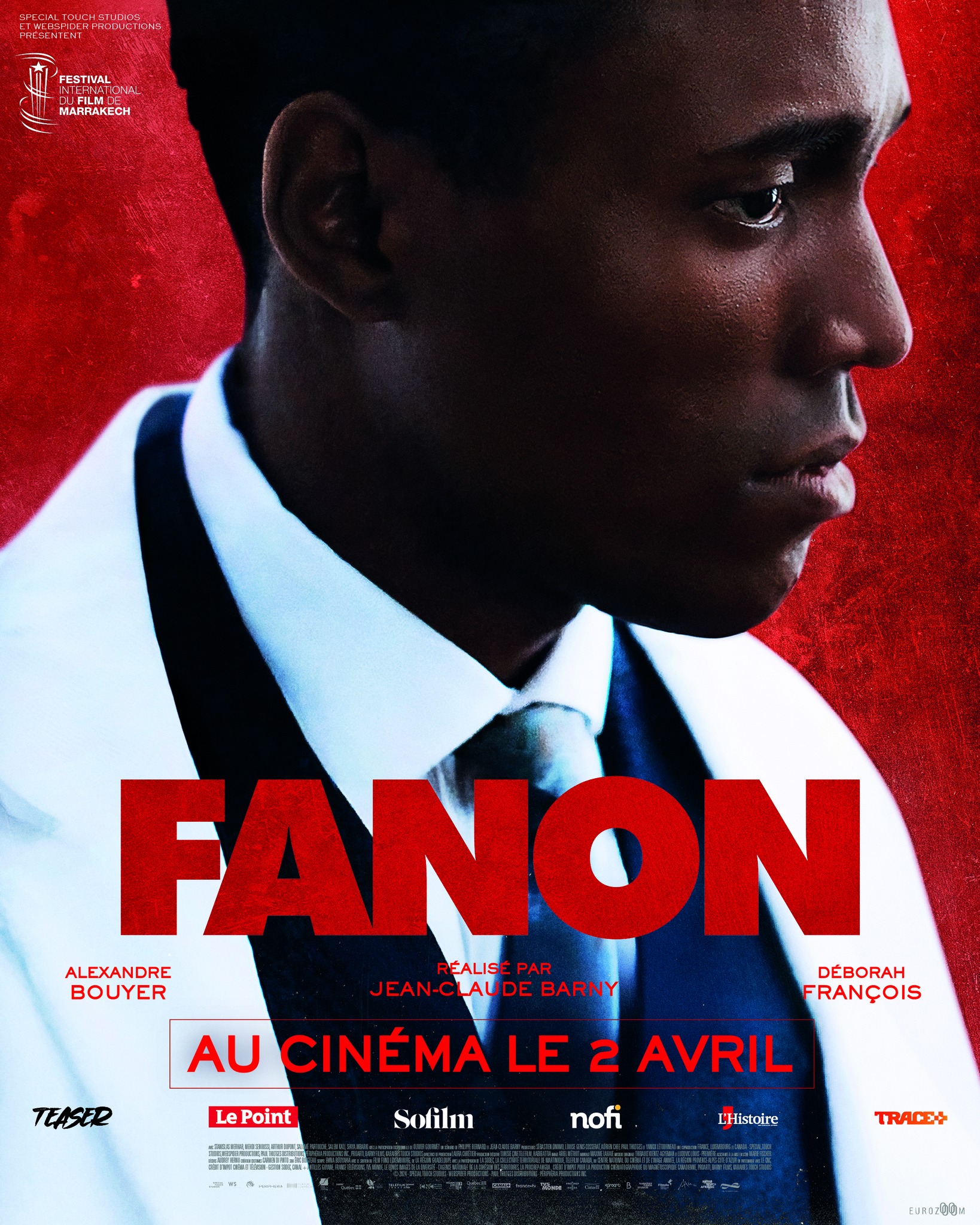
In short, whether you are a history enthusiast, a fan of political cinema, an admirer of Frantz Fanon’s work, or simply in search of an intense and intelligent film, Fanon is a must-see. Its release in French theaters on april 2, 2025, is a chance to experience on the big screen an essential chapter of history revisited with talent. Prepare for an emotional and enlightening journey into the colonial past – a cinematic experience that will linger long after the credits roll.
Summary
Historical context and cultural importance
Jean-Claude Barny behind the camera: a vision between realism and poetry
A cast in service of History
Committed themes: colonialism, psychiatry, and the quest for justice
A must-see film: history lesson meets emotional impact
